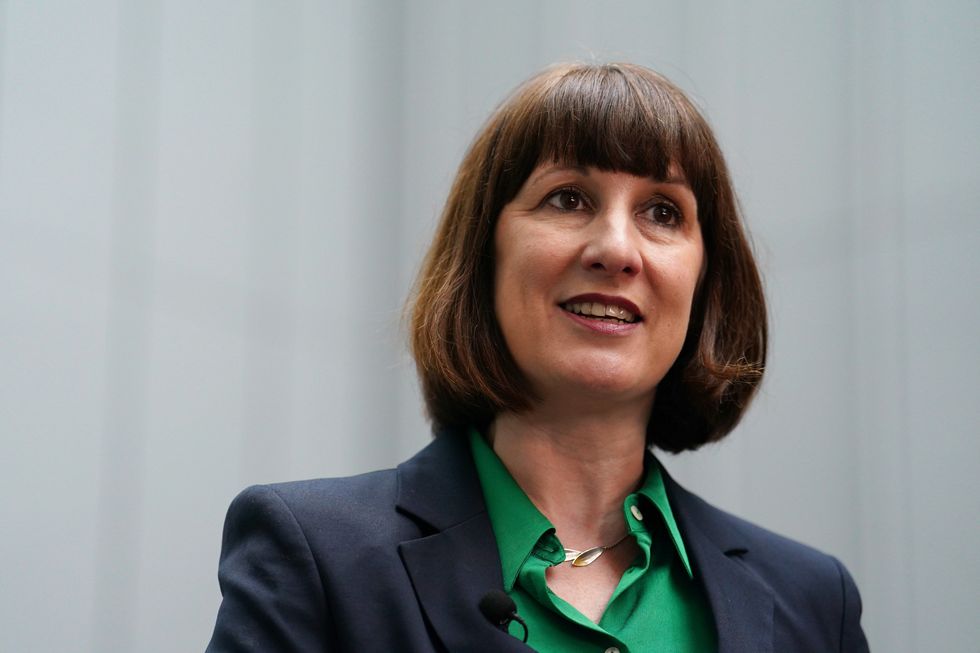Budget 2024 predictions Rachel Reeves plots ISA cap and inheritance tax raid
GB News
This increase, worth £1,400 a year for an eligible full-time worker, marks a substantial step towards delivering on the Government's promise of a genuine living wage
Don't Miss
Most Read
Trending on GB News
Millions of workers across the UK are set to receive a significant pay boost next year, as Chancellor Rachel Reeves announces an increase in the National Living Wage and National Minimum Wage.
From April 2025, the National Living Wage will rise by 6.7 per cent to £12.21 per hour, benefiting over three million workers.
This increase, worth £1,400 a year for an eligible full-time worker, marks a substantial step towards delivering on the Government's promise of a genuine living wage.
National Minimum Wage for 18 to 20-year-olds will also see a record-breaking increase, rising from £8.60 to £10.00 per hour.
This £1.40 boost represents the largest increase in the rate on record, potentially adding £2,500 to the annual earnings of full-time younger workers eligible for this rate.
This move towards a single adult wage rate aligns with the Government's commitment to being pro-business, pro-worker, and pro-growth and forms a key part of the Plan to Make Work Pay, which aims to boost the pockets of the lowest-paid workers by up to £600 a year through the Employment Rights Bill.

The pay increase comes ahead of the Budget
PEXELSThe pay increase comes ahead of the Budget, which aims to fix the foundations for delivering change by addressing NHS issues and rebuilding Britain, without imposing higher taxes on working people's payslips.
Chancellor Rachel Reeves said: "This Government promised a genuine living wage for working people. This pay boost for millions of workers is a significant step towards delivering on that promise."
Business Secretary Jonathan Reynolds added: "Good work and fair wages are in the interest of British business as much as British workers.
"This Government is changing people's lives for the better because we know that investing in the workforce leads to better productivity, better resilience and ultimately a stronger economy primed for growth."
The pay increase extends to apprentices as well, with 18-year-old apprentices in industries like construction seeing their minimum hourly pay rise by 18.0 per cent, from £6.40 to £7.55 an hour.
In total, these increases will benefit 3.5 million workers across the UK.
Hilary Jones, Ethics Director at Lush Cosmetics, commented on the wage increase saying: "In these tough times where the cost of living continues to rise, it is great to see the Government increase minimum wage closer to these calculations to support the hardest working and most vulnerable workers across the UK."
The Low Pay Commission, whose advisory remit was overhauled by ministers in July to consider the cost of living, recommended these increases.
LATEST DEVELOPMENTS:
Baroness Philippa Stroud, Chair of the Low Pay Commission, stated: "These rates secure a real-terms pay increase for the lowest-paid workers.
"Young workers will see substantial increases in their pay floor, making up some of the ground lost against the adult rate over time."
Angela Rayner, Deputy Prime Minister said: "A proper day's work deserves a proper day's pay. Our changes will see a pay boost that will help millions of lower earners to cover the essentials as well as providing the biggest increase for 18-20-year-olds on record."
 Rachel Reeves will deliver the Budget on October 30 PA
Rachel Reeves will deliver the Budget on October 30 PAReeves has warned of "difficult decisions" ahead of her Budget as Government sources indicate potential tax rises and spending cuts totalling £40billion in a bid to fill the hole in the public finances.
The Chancellor has stated that Labour inherited "the worst set of circumstances since the Second World War" regarding Government finances, a claim disputed by the Conservatives.
Despite pledging "no return to austerity", Reeves suggests that most of the financial gap will likely be filled by tax increases rather than spending reductions.







